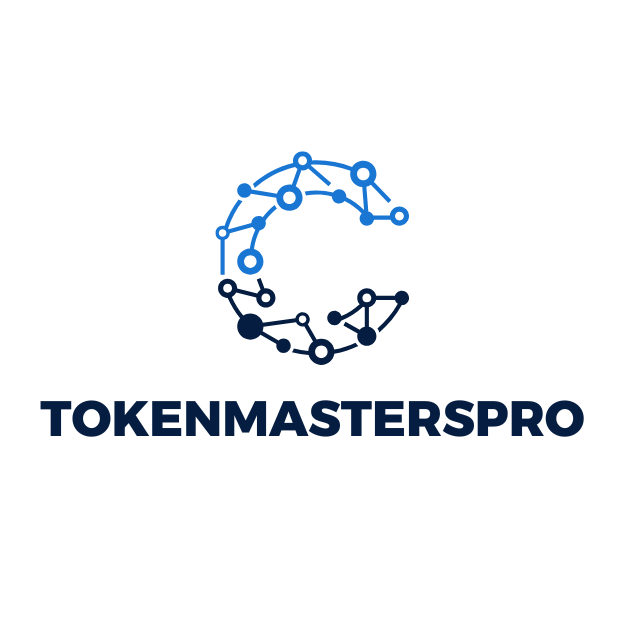In a world where technology reigns supreme, learning to code in Python is like discovering a secret superpower. Whether you’re dreaming of automating mundane tasks or creating the next viral app, Python’s simplicity and versatility make it the perfect sidekick. Forget the days of wrestling with complex languages; Python’s got your back, ready to help you unleash your inner tech wizard.
Table of Contents
ToggleOverview Of Python Coding Tutorials
Python coding tutorials offer structured learning paths for individuals at any skill level. These tutorials encompass various topics, including basic syntax, data structures, and advanced concepts like web development or machine learning. A range of formats exists for tutorials, such as video, interactive coding, and written guides, enabling learners to choose their preferred method.
Participants often benefit from hands-on exercises within tutorials, encouraging practical application of learned concepts. Many tutorials provide real-world projects, allowing learners to apply their skills in scenarios resembling industry demands. Large communities exist around Python, with forums and discussion platforms enhancing the learning experience through shared knowledge and resources.
Structured courses, often broken down into modules, facilitate an organized approach to mastering Python. Learners can track progress, revisit challenging sections, and build a comprehensive understanding over time. In addition, numerous online platforms offer Python tutorials, including Codecademy, Coursera, and freeCodeCamp, providing flexibility in learning schedules.
Accessing tutorials comes at various price points, with many free resources available alongside paid options offering in-depth instruction. Using Python coding tutorials fosters confidence and competence, supporting users in their journey toward becoming proficient programmers. As interest in Python continues to grow significantly, these tutorials remain crucial in equipping learners with essential coding skills.
Benefits Of Learning Python
Learning Python offers numerous advantages that cater to aspiring programmers. Its straightforward syntax serves as an ideal entry point for beginners, while its powerful capabilities attract experienced developers seeking robust solutions.
Versatility In Applications
Python’s versatility stands out in various fields, including web development, data analysis, artificial intelligence, and scientific computing. Developers appreciate its extensive libraries, such as Django for web applications and Pandas for data manipulation. This adaptability enables programmers to transition between tasks seamlessly, enhancing project efficiency. Additionally, Python’s readability fosters collaboration among teams, as newcomers quickly grasp code written by others. Its compatibility across diverse platforms, including Windows and Linux, further solidifies its status as a go-to programming language.
High Demand In Job Market
The job market exhibits a rising demand for Python developers, with a 27% growth in programming job postings reported by the U.S. Bureau of Labor Statistics. Companies like Google, Facebook, and Amazon actively seek Python expertise, recognizing its relevance in cutting-edge technologies. Employers value Python skills for roles ranging from data scientist to software engineer, underscoring its importance in various industries. As digital transformation continues, proficiency in Python not only enhances employability but also offers competitive salaries. Aspiring programmers benefit from focusing on Python, empowering them to seize emerging career opportunities.
Types Of Python Coding Tutorials
Python coding tutorials come in various formats, allowing learners to choose what suits their style best. Different types cater to diverse learning preferences, ensuring comprehensive understanding.
Video Tutorials
Video tutorials provide visual learning experiences, ideal for those who grasp concepts better through demonstration. Platforms like YouTube and specialized sites offer detailed walkthroughs on Python topics, covering everything from basic syntax to complex frameworks. Many videos feature engaging instructors who explain key concepts interactively. Additionally, some channels focus on project-based learning, motivating viewers to apply their skills in real-world scenarios. This format encourages learners to follow along and practice simultaneously, facilitating better retention.
Written Tutorials
Written tutorials present information in a structured manner, often featuring step-by-step guides for learning Python. Websites such as W3Schools and Real Python offer comprehensive articles covering fundamental and advanced topics. Detailed examples are frequently included, allowing readers to see code in context. Furthermore, written formats accommodate in-depth explanations, enabling thorough understanding of concepts. Learners appreciate the ability to revisit complex sections as needed. Blogs and online courses also incorporate written materials, enhancing their educational value through supplementary reading.
Recommended Python Coding Tutorials
Numerous resources exist for aspiring Python developers, ensuring a well-rounded learning experience for all skill levels.
Platforms For Beginners
Codecademy stands out as an excellent choice for beginners, providing interactive lessons that encourage immediate practice. FreeCodeCamp offers a comprehensive curriculum, covering everything from fundamentals to practical applications. Khan Academy focuses on foundational concepts, ensuring learners grasp essential programming principles. Udacity features beginner-friendly nano degrees, which guide learners through hands-on projects. Coursera partners with top universities to deliver structured courses, making it easier to stay on track. These platforms often include quizzes and exercises, reinforcing understanding while making learning engaging.
Advanced Tutorial Resources
For advanced learners, Real Python delivers in-depth tutorials and articles that dive deep into complex topics, such as decorators and context managers. Pluralsight offers a wide array of advanced courses, focusing on specific libraries like NumPy and TensorFlow. LinkedIn Learning provides expert-led video tutorials, helping users enhance their skills in web development and data science. Udemy hosts numerous courses that cater to specialized areas, such as automation and machine learning. DataCamp specializes in data science and offers practical experience through coding challenges. Each of these resources equips experienced programmers with the skills necessary to tackle challenging projects.
Best Practices For Learning Python
Engaging with Python coding requires a strategic approach. Consistent practice stands at the forefront of effective learning. By dedicating time daily or weekly, learners solidify their understanding of core concepts. Utilizing interactive coding platforms enhances comprehension through hands-on experience.
Setting specific goals also plays a critical role. Progress becomes measurable when learners delineate targets, such as completing a module or mastering a particular library. Tracking achievements fosters motivation and confidence throughout the learning journey.
Breaking down complex topics into smaller segments aids retention. Students grasp intricate subjects more easily when they tackle them piece by piece instead of all at once. Engaging with project-based challenges reinforces learning and helps in applying skills to real-world scenarios.
Joining online communities and forums enhances knowledge-sharing. Platforms like Stack Overflow or Reddit allow learners to seek help and collaborate, fostering a supportive environment. Engaging with peers cultivates a deeper understanding of various challenges.
Accessing varied resources enriches the learning process. Combining video tutorials with written guides facilitates a well-rounded education. Utilizing different formats caters to individual learning preferences and promotes versatility in absorbing material.
Regularly revisiting difficult topics consolidates understanding. Reviewing challenging sections or concepts strengthens retention and builds confidence. This approach also aids in mastering foundational principles invaluable for advanced studies.
Incorporating real-world projects provides practical application of skills. By developing small applications or contributing to open-source projects, learners gain invaluable experience that mirrors actual coding environments.
Prioritizing these best practices empowers learners to navigate the vast landscape of Python effectively, thus enhancing both their skill set and versatility in technology-driven fields.
Embracing Python coding tutorials opens doors to endless possibilities in the tech landscape. With a variety of resources available, learners can find the perfect fit for their unique styles and schedules. The structured paths provided by these tutorials not only build foundational skills but also prepare individuals for advanced topics and real-world applications.
As the demand for Python expertise continues to rise, investing time in these tutorials can significantly enhance one’s career prospects. By engaging with hands-on projects and joining supportive communities, aspiring programmers can cultivate their skills and confidence. With dedication and the right resources, mastering Python becomes an achievable goal, paving the way for exciting opportunities in the digital age.



